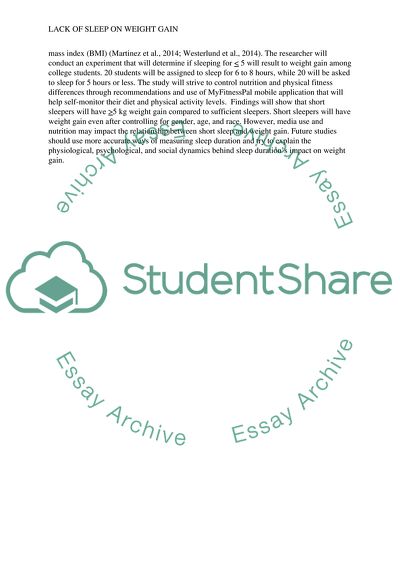Cite this document
(Effect of Lack of Sleep on Weight Gain among College Students Research Paper Example | Topics and Well Written Essays - 2000 words, n.d.)
Effect of Lack of Sleep on Weight Gain among College Students Research Paper Example | Topics and Well Written Essays - 2000 words. https://studentshare.org/psychology/1869157-research-design-paper
Effect of Lack of Sleep on Weight Gain among College Students Research Paper Example | Topics and Well Written Essays - 2000 words. https://studentshare.org/psychology/1869157-research-design-paper
(Effect of Lack of Sleep on Weight Gain Among College Students Research Paper Example | Topics and Well Written Essays - 2000 Words)
Effect of Lack of Sleep on Weight Gain Among College Students Research Paper Example | Topics and Well Written Essays - 2000 Words. https://studentshare.org/psychology/1869157-research-design-paper.
Effect of Lack of Sleep on Weight Gain Among College Students Research Paper Example | Topics and Well Written Essays - 2000 Words. https://studentshare.org/psychology/1869157-research-design-paper.
“Effect of Lack of Sleep on Weight Gain Among College Students Research Paper Example | Topics and Well Written Essays - 2000 Words”. https://studentshare.org/psychology/1869157-research-design-paper.


